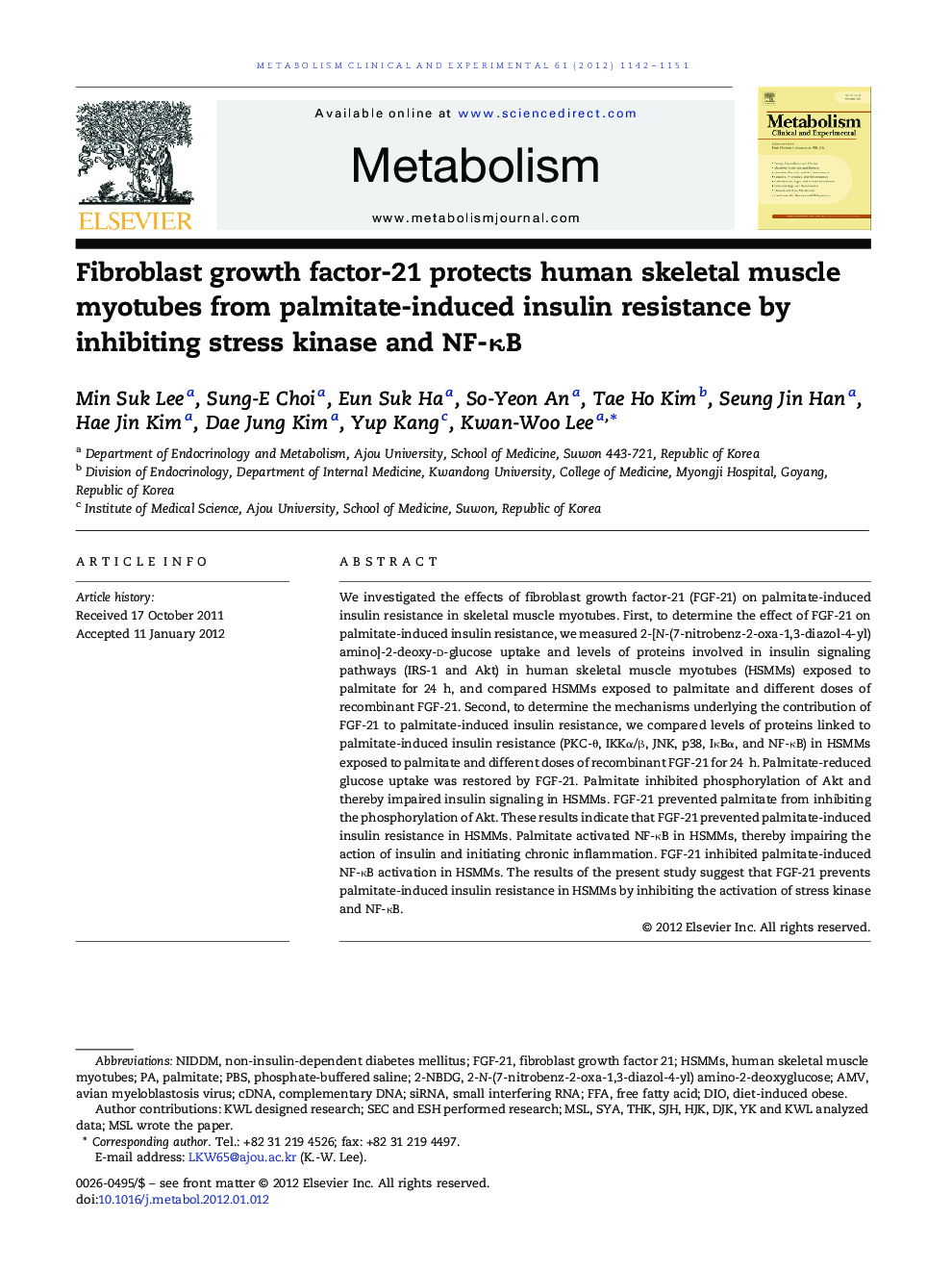| Article ID | Journal | Published Year | Pages | File Type |
|---|---|---|---|---|
| 5903677 | Metabolism | 2012 | 10 Pages |
Abstract
We investigated the effects of fibroblast growth factor-21 (FGF-21) on palmitate-induced insulin resistance in skeletal muscle myotubes. First, to determine the effect of FGF-21 on palmitate-induced insulin resistance, we measured 2-[N-(7-nitrobenz-2-oxa-1,3-diazol-4-yl)amino]-2-deoxy-d-glucose uptake and levels of proteins involved in insulin signaling pathways (IRS-1 and Akt) in human skeletal muscle myotubes (HSMMs) exposed to palmitate for 24 h, and compared HSMMs exposed to palmitate and different doses of recombinant FGF-21. Second, to determine the mechanisms underlying the contribution of FGF-21 to palmitate-induced insulin resistance, we compared levels of proteins linked to palmitate-induced insulin resistance (PKC-θ, IKKα/β, JNK, p38, IκBα, and NF-κB) in HSMMs exposed to palmitate and different doses of recombinant FGF-21 for 24 h. Palmitate-reduced glucose uptake was restored by FGF-21. Palmitate inhibited phosphorylation of Akt and thereby impaired insulin signaling in HSMMs. FGF-21 prevented palmitate from inhibiting the phosphorylation of Akt. These results indicate that FGF-21 prevented palmitate-induced insulin resistance in HSMMs. Palmitate activated NF-κB in HSMMs, thereby impairing the action of insulin and initiating chronic inflammation. FGF-21 inhibited palmitate-induced NF-κB activation in HSMMs. The results of the present study suggest that FGF-21 prevents palmitate-induced insulin resistance in HSMMs by inhibiting the activation of stress kinase and NF-κB.
Keywords
Related Topics
Life Sciences
Biochemistry, Genetics and Molecular Biology
Endocrinology
Authors
Min Suk Lee, Sung-E Choi, Eun Suk Ha, So-Yeon An, Tae Ho Kim, Seung Jin Han, Hae Jin Kim, Dae Jung Kim, Yup Kang, Kwan-Woo Lee,
